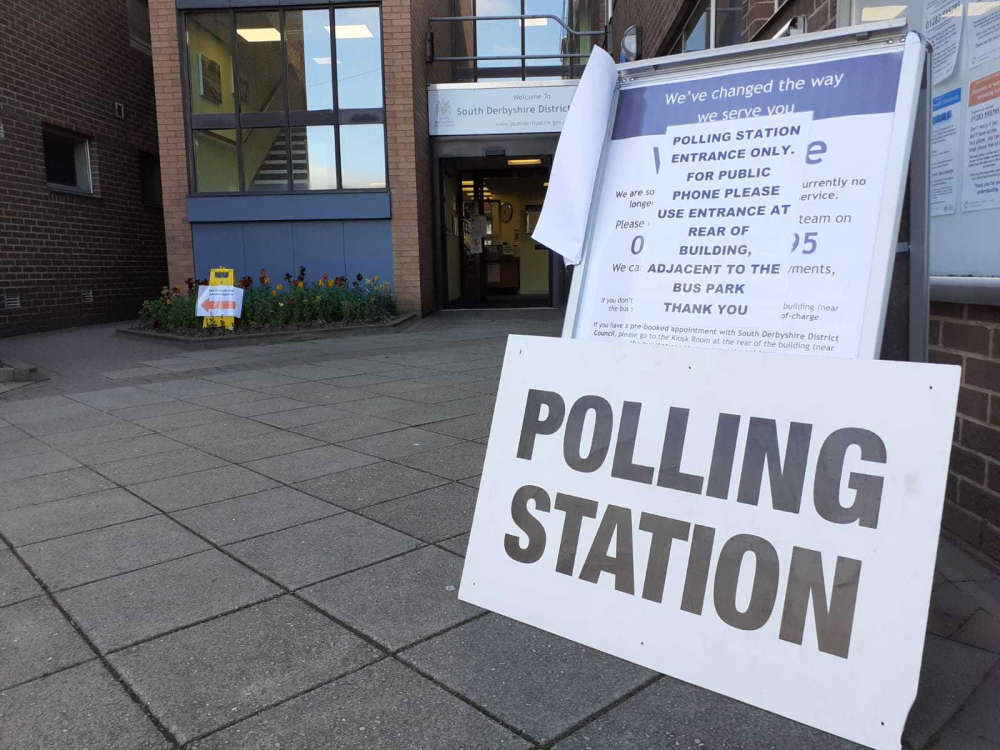A recent online survey has revealed the relationship residents in Derby and Derbyshire have with nature and their priorities for helping nature to thrive in the future.
The survey, which attracted more than 1,000 responses from the public, was carried out as part of work by Derbyshire County Council, working with the University of Derby and other partners, to develop the first Local Nature Recovery Strategy (LNRS) for Derbyshire and the city of Derby.
When published by summer 2025, the strategy will set out where and how nature can be improved and enhanced across the county and city.
The survey results confirm a strong relationship between the county and city population and nature. 99% of the survey respondents stated that nature makes them feel happy, and 98% stated nature is important for their health and wellbeing. Local nature is particularly important to 97% of the respondents, and 87% said they had noticed loss or damage to local nature.
Survey respondents reported having good levels of access to nature, with 97% reporting that there is a green space within a walking distance of their home. 49% reported accessing nature every day, 31% more than twice a week and 8% more than once a week.
When asked about a favourite green or natural space in Derbyshire, the Peak District National Park was the most popular choice, followed by residents’ own garden/allotment. Chatsworth Estate/Park came in at 3rd place; followed by Shipley Country Park in 4th place; and Elvaston Castle Country Parkin 5th place.
Only 37% of the survey respondents said they felt happy with amount of time they spend with nature, with 81% wanting to spend more time in nature, and just over 60% wanting to visit a wider range and different types of nature.
When asked about factors limiting their access to nature, 53% of survey respondents said it was due to poor weather; 46% said they were too busy; 20% due to travel difficulties; 20% due to lack of facilities; and 17% cited poor physical health as a limiting factor.
Key public concerns highlighted over nature depletion were the extinction or decline of species (81% of respondents); reduction in natural pollinators and pest control (73%); poor water quality (63%); increases in extreme weather events (63%); increase in carbon emissions (58%).
The survey results show a high level of public interest in nature recovery. The top five scoring priorities for nature recovery in Derbyshire over the next 5 years are (in order):
- First priority: Healthier rivers, lakes, streams, springs and wells.
- Second priority: Protection of endangered species.
- Third priority: Improved condition of habitats.
- Fourth priority: More trees and woodland.
- Fifth priority: More hedgerows.
When asked about actions taken personally to support nature recovery, protection and enhancement, 93% said that they encourage wildlife in their garden, just over three-quarters plant flowers to attract bees, and just under 45% have built bird/bat/bug houses or similar. 21% have actively supported community-led nature conservation projects.
When asked about future action to support mature recovery, 40% of respondents said that they would be willing to volunteer their time to support projects, 29% said that they would be willing to donate money and 18% said that they could offer specialist skills for a nature recovery project.
More than half of the survey respondents asked for more information on how to encourage biodiversity and protect and enhance nature, 48% recognised that a growth in nature recovery skills is needed and over a third stated that workplaces have an important role to play in supporting nature recovery.
Councillor Carolyn Renwick, Derbyshire County Council’s Cabinet Member for Infrastructure and Environment, said: “When nature thrives, we all benefit. That’s why we need to take action now to protect our environment for tomorrow.
“By helping nature to flourish in Derby and Derbyshire, we can help to address three of the biggest challenges we face: biodiversity loss, climate change and wellbeing – so it’s great to see so many responses to this survey which demonstrates the importance local people attach to our natural environment.
“This all feeds into our overall project to produce a draft plan for protecting and prioritising nature in Derby and Derbyshire and I look forward to seeing the plan opened up to public consultation next year so that local residents, businesses and organisations can have their say.”
Principal Investigator for the university LNRS delivery team, Dr Polina Baranova Associate Professor of Strategy and Sustainability at the University of Derby, added: “It is encouraging to see such a strong vested interest from the public in nature recovery in Derbyshire. The public recognises the emotional and wellbeing benefits of connection with nature. There is a compelling public demand to spend more time with nature and to support nature recovery projects in the locality.
"Collectively with our strategic partners and informed by cutting-edge research, we need to provide effective pathways that would enable our local communities to support nature recovery and with that build stronger and healthier communities and places”.
Chair of the LNRS Steering Group, Dr Miles Watkins, also commented: “This public survey represents an important element in the stakeholder engagement for the formation of the new strategy to protect the natural environment. It goes to show not just how fundamental nature is to the health of the planet but also to the health and wellbeing of communities. We now have an opportunity to create plans to make sure nature is protected, enhanced and is accessible to all for everyone’s benefit.”
The next phase of the LNRS development is identifying the priority locations and actions for nature recovery across Derbyshire and Derby. This will include public consultation on the draft LNRS, which is scheduled to take place from mid-February to late March 2025. This will provide another opportunity for residents to provide their views on the LNRS and how nature can be improved and enhanced locally.
For more information on the preparation of the Local Nature Recovery Strategy for Derbyshire please visit www.derbyshirenaturerecovery.co.uk
You can also register to receive regular email updates on the project by signing up to the Derbyshire LNRS newsletter Derbyshire County Council - Thriving with Nature Newsletter (govdelivery.com).

 May County Council election candidates announced for Erewash
May County Council election candidates announced for Erewash
 County council candidates revealed
County council candidates revealed
 Man charged in connection with robbery in Ilkeston
Man charged in connection with robbery in Ilkeston
 CrossCountry confirms May 2025 timetable change
CrossCountry confirms May 2025 timetable change




